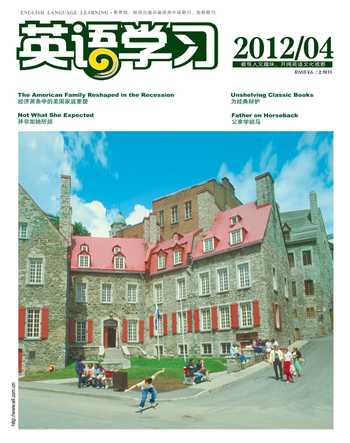“心”与 “脑”
林巍
Heart and Brain
原文
[1] 在西方,家长告诉孩子“做事要用脑”,“别走神”;而中国人自古就“心之官则思”,到现在还“心想事成”。是“脑”还是“心”在思维?这是一个科学问题?文化问题?
[2] 在科学上讲,西医的“心”与中医的“心”并非是一个概念;前者是建立在解剖学、生理学和神经学等基础上的纯粹生物概念,后者则不仅限于医学,而且还是一种文化、哲学、宗教、甚至玄学的理念——“心者,神之舍也”。
译文
[1] In the West, parents tell their children “to follow the head, not the heart” and “not to be absent-minded while learning”, whereas in China since ancient times, there have been sayings such as “The heart is the very organ generating thought” and “All wishes, from the bottom of ones heart, may come true”. Where is thinking taking place then – in the brain or in the heart? Should the answer to the discrepancy be found on a scientific or a cultural ground?
[2] Scientifically speaking, “heart” in Western medicine and“xin” (heart) in traditional Chinese medicine are not the same thing. The former is purely a biological concept based on anatomy, biology and neurology, etc.; while the latter is the “dwelling place of the spirit”, filled with connotations of culture, philosophy, religion and even metaphysics, which are far beyond the domain of medicine.
原文
[3] 其实,在中西跨文化视野里,对“脑”与“心”的理解,已经超越了科学范畴,否则难以理解。例如,有人认为将英文的psychology翻译为“心理学”是一种历史的误解,是中国人不知脑之作用、以心代脑的结果。按照纯科学的观点,该英文概念是对人的意识及其作用所进行的科学研究,故应翻译成“脑理学”。
[4] 在中国传统文化里,人是一个整体,故“心”与“脑”不可分开。常见的是,思维紧张时,心跳也会加快。幸运的是,这一现象也被现代科学所证实:人的心理过程是一种非常复杂的功能系统活动,不可能独立地局限于大脑一部分,而只能在相关要素的协同下得以完成。更神奇的是,近来多个案例证实,一个人经过了心脏移植手术后,竟然会改变整个性格!
译文
[3] The way to grasp the essence of “brain” and “heart” in fact should not be confined to a scientific approach; rather it ought to be viewed cross-culturally. Otherwise, certain issues can be beyond comprehension. For example, if purely from a scientific point of view, “psychology”—the scientific study of the human mind and its functions—is deemed to have been mistranslated into Chinese as “xin li xue” (the scientific study of the heart) due to the historical dislocation of heart and brain in their biological understanding, and should be corrected as “nao li xue” (the scientific study of the brain) accordingly.
[4] In traditional Chinese culture, man is viewed holistically as an inseparable unit of heart and mind, which is reflected in a common phenomenon where concentrated mind may cause palpitations. Fortunately, modern medicine, on the other hand, has also revealed that psychology is such a complicated functional process that all the relevant components of the body—not confined to the brain—are called upon to complete the task. More surprisingly, recent medical cases have demonstrated that once a persons heart has been transplanted, his character has altered as well.
原文
[5] 同时,西方人还说,我的心告诉我这样,而我的大脑却告诉我那样。前者代表情感,后者代表理智。矛盾吗?既矛盾又统一,因为二者都是人们心智的一部分。二者结合的功能可以非常神奇——既可使天堂变成地狱,亦可使地狱变成天堂。
[6] 所以,该用脑时用脑,该用心时用心。就人的整体而言,科学与文化因素其实汇聚于内,而彰显于外,同时又浑然一体,古今中外,概莫如是——这对于跨文化、跨语言方面沟通的理解,亦会有所帮助。?
译文
[5] Westerners also say something like “my heart tells me one thing, but my mind tells me another”, by which the“heart” is meant emotions and the “brain” reasoning. They are contradictorily coexisting as part of human emotional intelligence, with which can make Heaven to be Hell, and Hell to be Heaven.
[6] The brain and heart are therefore perfectly endowed with our body, functioning differently but harmoniously. The scientific and cultural aspects of the exploration into the constitution both internally and externally, across the board, will surely benefit our understanding of cross-cultural and crosslinguistic communication as human beings. ?
解析
在[1]中,由于涉及到了中英文化中的俗语,故在翻译中语言形态上的差异比较大。例如,“做事要用脑”并不是通常意义上的“do things with your brain”, 而是“to follow the head, not the heart”;“心想事成”则释译为All wishes, from the bottom of ones heart, may come true;至于“这是一个科学问题?文化问题?”,中文极为简洁,而若翻译清楚,则要作出相应的变动与增添:这里的“问题”不是question,而是 answer 和 discrepancy,且应补充 ground一词,故整句译为:Should the answer to the discrepancy be found on a scientific or a cultural ground?
在[2]中,对于“后者则不仅限于医学,而且还是一种文化、哲学、宗教、甚至玄学的理念——‘心者,神之舍也”,由于极富中国文化的表述,故在英文里的句子结构需作较大调整:...the latter is the“dwelling place of the spirit” filled with connotations of culture, philosophy, religion and even metaphysics, which are far beyond the domain of medicine. 将“心者,神之舍也”提前,以filled with的介词短语连接后面,从而整合“文化、哲学、宗教、甚至玄学”的含义;其中,“理念”又不一定译作ideas等,而connotations更符原意。在[3]中,对于“其实,在中西跨文化视野里,对“脑”与“心”的理解,似乎已超越了科学范畴”,原文是肯定表达,但译文却以否定表达should not be confined to a scientific approach; rather...此为一种“正说反译”,为的是强调、增加语势。
在[5]中,对于“前者代表情感,后者代表理智。矛盾吗? 既矛盾又统一,因为二者都是人们心智的一部分。二者结合的功能可以非常神奇——既可使天堂变成地域,亦可使地域变成天堂”,要注重“整体把握”,即不必限于the former means … the latter means的句式,同时也不必照译后面的“问题”等——Is this contradictory? They are both contradictory and united…这样太“实”,太“中文化”了;而加工、整合之后,便成现在的译文。
同样,在[6]中,求的是在整体段落上的“功能对等”,特别是将“科学、文化集人于一身”、“总体功能,综合运用”,糅合一起翻译出来;同时,将“对人性加深理解”译为as human beings的介词短语,置后处理。

